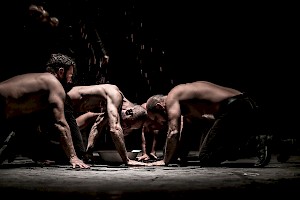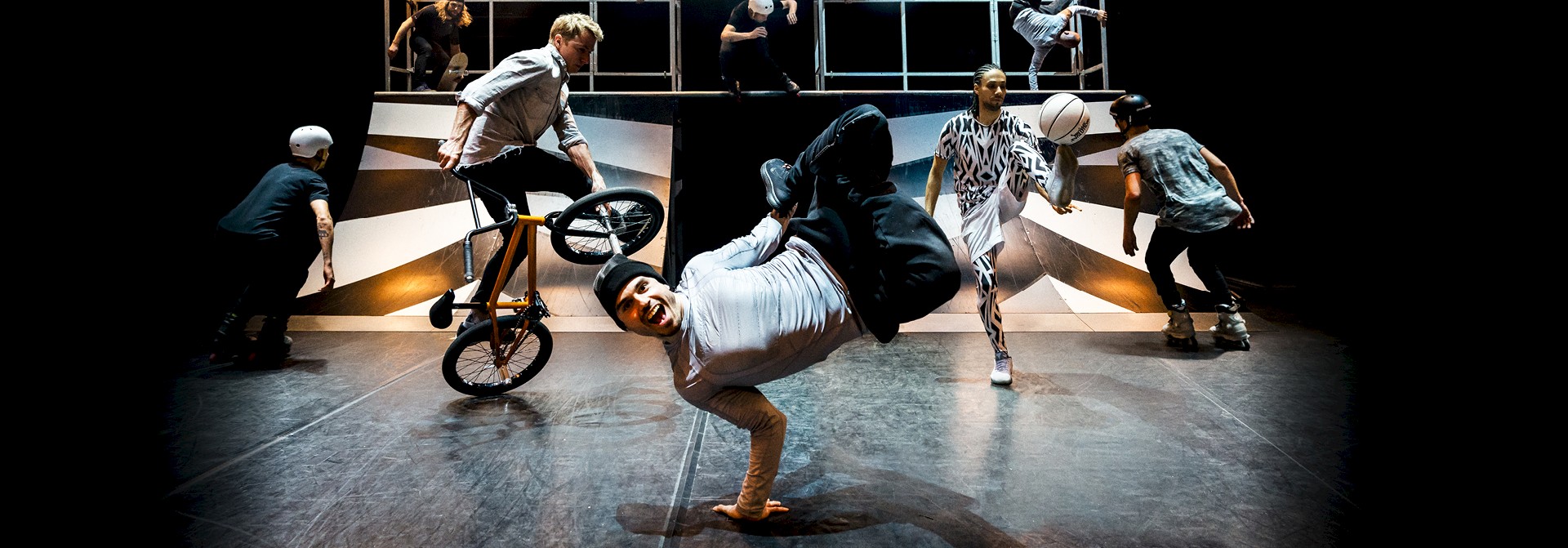Macbettu: the marriage of Shakespeare and Sardinia
20.6.2018
 One of the major international performances featured in the Tampere Theatre Festival’s Main Programme this year is Macbettu, a strongly physical interpretation of the classic Shakespearean tragedy Macbeth. Created by director Alessandro Serra and theatre companies Sardegna Teatro and Compagnia Teatropersona, this rendition is performed in Sardinian.
One of the major international performances featured in the Tampere Theatre Festival’s Main Programme this year is Macbettu, a strongly physical interpretation of the classic Shakespearean tragedy Macbeth. Created by director Alessandro Serra and theatre companies Sardegna Teatro and Compagnia Teatropersona, this rendition is performed in Sardinian.
The idea of creating Macbettu was born in 2006 when Alessandro Serra, director and founder of Compagnia Teatropersona, was photographing the carnival festivities in Sardinia in 2006. Two masked children reminded him of characters in Macbeth, and soon Serra started thinking of translating the Scottish play into Sardinian. Serra was strongly influenced by Sardinian carnivals and wanted those influences to be embedded in his version of the play.
The cornerstones of Macbettu are its physicality and soundscape. Particular focus is placed on actors; their voices and gestures.
’Macbettu is a work of visionary nature that presents a strong corporeal presence and physical actions, but above all it is an acoustic work for the power of its language and sounds’, Serra says. The Sardinian translation focused on the musical aspect of the text rather than the literature itself. The goal was to avoid simply reciting the text, seeking instead the vitality of spoken language. The Sardinian language proved to be perfect for this purpose – ’a living, rugged sound devoid of adornments and affectation’, Serra describes.
’Actors lie when they recite a translated work by Shakespeare, striving to establish a rhythm that doesn’t belong to it’, Serra says. He thinks the dissonance between the actors and the text can be avoided by ensuring that it is the actors who speak on the stage, not the characters. Serra believes that rewriting the language is best done by actors themselves, which is why the translation of the text was entrusted to actor Giovanni Carroni.
What makes Macbettu truly breathtaking – even ritualistic – is its physicality. Serra approaches theatre from the point of view of physical actions and song, and having practiced martial arts since he was young, the director draws inspiration from them. The precision of martial arts is present in Macbettu as well.
Of course, Macbettu is faithful to some Scottish traditions too. Following an Elizabethan tradition, Serra wanted an all-male cast.
’I condensed all the women into a single mother goddess, bearer of death: Lady Macbeth. Taller and stronger than the men, just like one of the oldest representations found in Ozieri, slender, abstract, and transcendent: the 4000-year-old figure of a woman’, Serra explains.
The end result is a beautiful, original and fascinating mixture of Shakespeare and Sardinian traditions.
This article is based on a text written by Alessandro Serra as well as other written material produced by the group.
Photo: Alessandro Serra
Macbettu at the Tampere Workers’ Theatre (the TTT-Theatre) on Wednesday 8th of August at 19.00 and Thursday 9th of August at 16.30.


